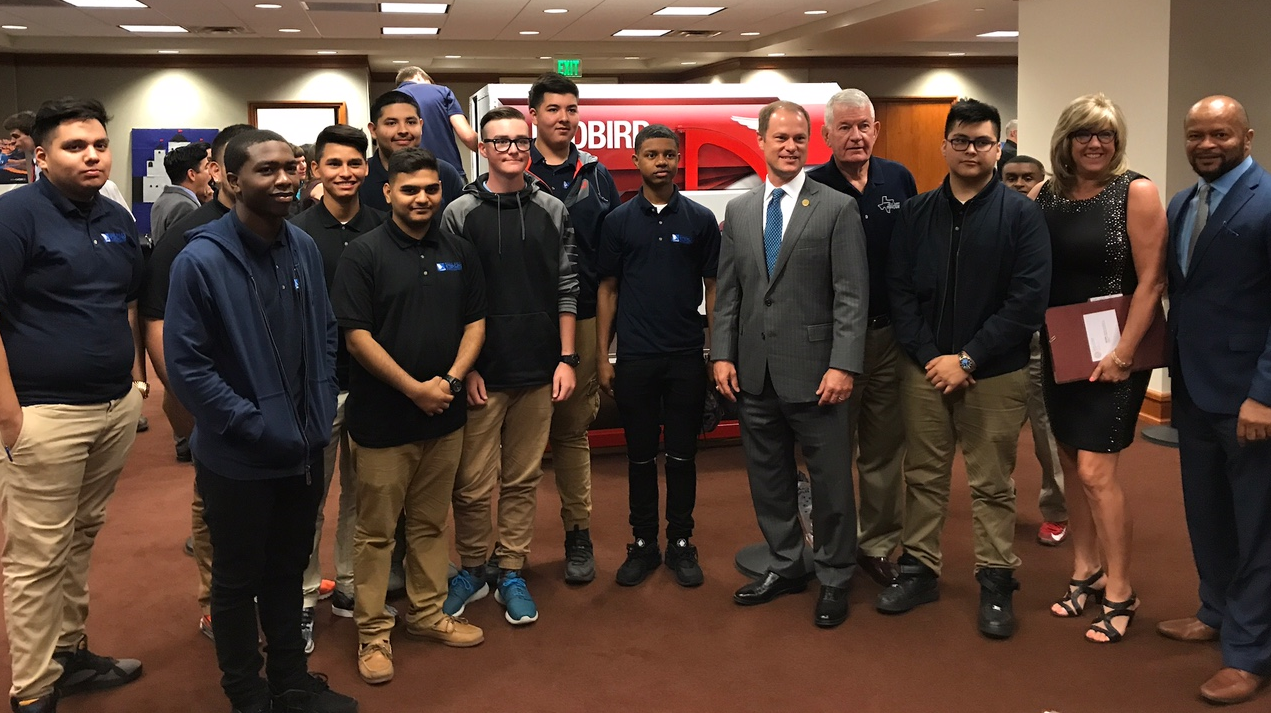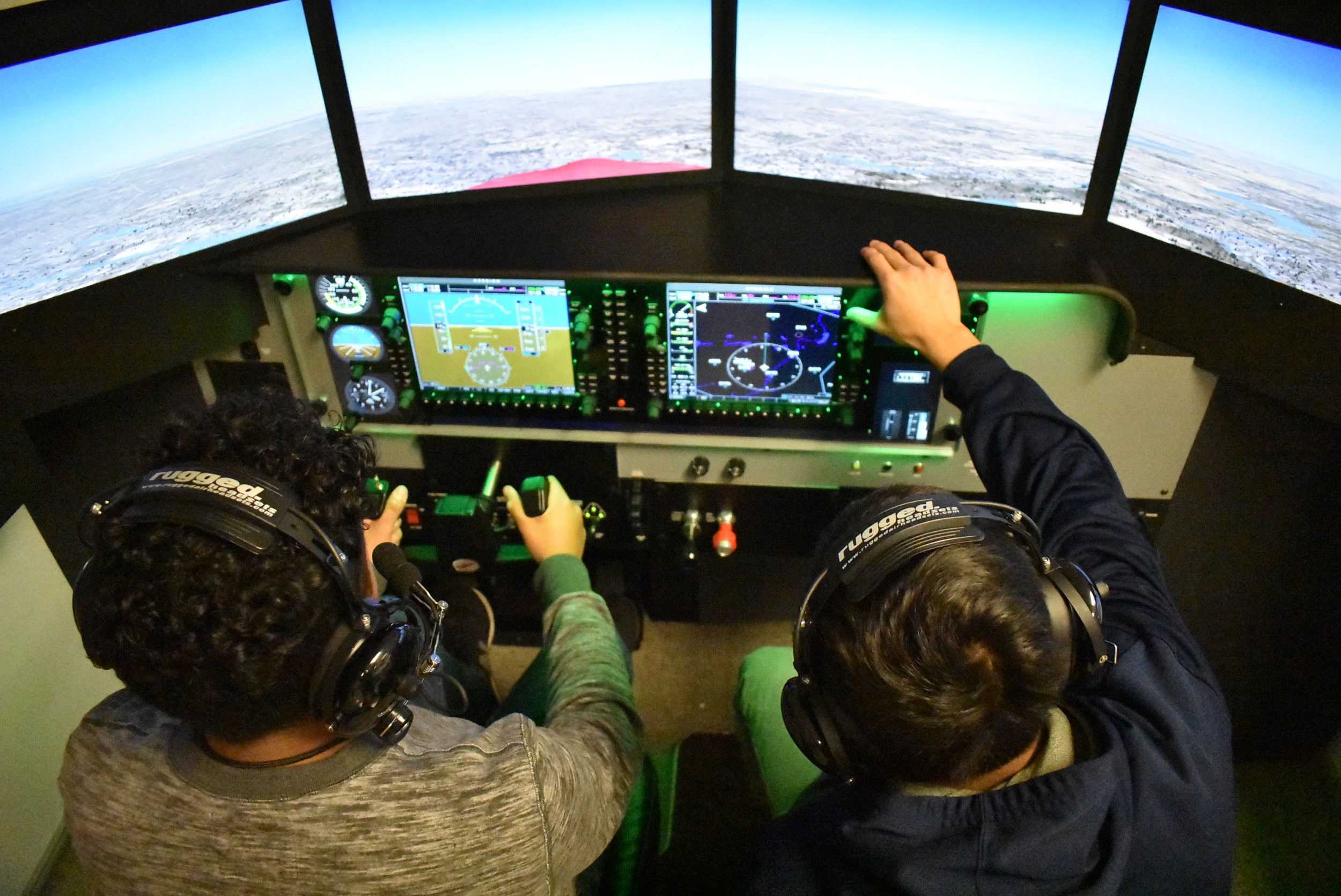General Aviation's Language Problem
In the song Alice’s Restaurant, Arlo Guthrie is banished to the Group W Bench with other deviants going through Army draft induction in the 1960’s. The Group W Bench became known in the Urban Dictionary as a place for crazy people that have wronged society in some absurd way. That’s how I felt when I went to my first aviation fly-in. My name tag might as well said:
Mike Clifford - Group W Bench
I was excited and curious in May 2013 as I drove to the San Marcos, TX airport and found the Skyport FBO. At the time, I had thought that FBO was an acronym for Footballers and Bowlers Organization. I was curious why soccer and cricket pitches would be at municipal airports. Oops. No playing fields. The Skyport FBO was simply an airport terminal for small planes. And a very nice one at that.
On this day, the Aircraft Owners and Pilots Association (which everyone called “A-O-P-A”, except for the people that said “A-Opa”) was having a fly-in where all sorts of small planes would actually fly in and later, fly out. The FBO was a Fixed Base Operation. Okay, sure, fixed base. Got it. Sort of.
My self-consciousness was way up as I wandered outside the base that was fixed. Greeting me was a giant wooden board with what looked to be 1,000 slots where hundreds of signatures were already populated. Dozens of smiling, friendly people holding Sharpies with big round stickers on their shirts were chatting up people and offering them stickers to proudly wear.
The headline at the top of the board said: THIRD CLASS MEDICAL REFORM! SIGN THE PETITION! So did the stickers, with the caveat that one had already signed the petition. A cheerful man and his wife approached me and offered me a Sharpie and a sticker. I took it. And then I said:
“What is Third Class Medical Reform?”
Their faces turned suddenly sad, their bodies slouched. A slow shake of their heads and they took back the Sharpie and the sticker. They moved away from me. So did everyone else. I was alone on the Group W Bench.
Craig Fuller, who used to be president of the AOPA and knows all about good presidencies rescued me. Craig understood that the language of aviation is not obvious to those of us merely curious. He patiently explained things that by that time I would not dare ask someone wearing a sticker.
Such as: “What is a Yoke?”
I think that a Yoke is a steering wheel for planes in the sky. They steer right and left just like cars do on the ground, but they also steer up and down because planes are in the air. Is it okay to say that about a Yoke? Or do I have to return to the Group W Bench?
Look, on paper, I present okay. I went to a school where the diploma is written in Latin. I spent a career in technology leadership, many of it as a senior executive. As an IT (that means Information Technology) person, I know all about speaking in endless acronyms and incomprehensible babble. I’ve spent a lifetime translating technology terminology and coaching others to lose their technology terms when explaining what they do. The only time I speak incomprehensibly is when I want you to not understand what I am saying. That’s usually when I’m confused myself, or tired. And it’s always the wrong thing to do.
But aviation does it all the time. Not deliberately. You can’t help it. Everyone does it.
Curiosity is generally the first reason why people are attracted to technology. The WOW factor grabs us, and leads us to study and practice as either a career or side hobby. There are dozens of different avenues in the technology profession; you can be a device engineer or create a web site for your family. Does this sound familiar? Aren’t people initially attracted to flying because they are curious? Is there a bigger WOW factor than flying? I mean, even if you are afraid of heights, isn’t it cool to be up in the air?
In technology, we can certainly scare people away when they are in the curious stage. We can tell you all about a native iOS app written in Objective-C that consumes data from a NodeJS API with a SQL database on the backend running on AWS EC2 with automatic scaling and instance duplication. Or we can tell you about how apps on an iPhone can record how many miles you run. The former will scare away everyone that isn’t already technology-minded. The latter doesn’t scare anyone away.
In aviation, what do you find when you curiously approach the possibility of flying?
You find a Yoke. What is a Yoke?
You find a Rudder. What is a Rudder, is it something like what is on a boat?
You find a Trim. Do I need to get a haircut?
You find that a 172 is nothing at all like a 170 and you should never make a mistake like that again.
You find that you must first get a special physical and then when you pass the driving test (sorry) you can get VFR then you can get IFR and then you can get your CPL and then you can be CFI and then you can work for an airline for very little salary.
I’ll leave out knowing what a Bonanza is. It’s not a lot of money, although it is. Never mind.
If you aren’t already into aviation, I may have lost you at Trim. And I may have lost you forever. I don’t know how to get you back. But if you already love aviation, none of this will bother you. Okay, maybe not until you find out how costly it is. You’ll still love it though.
My question, and point of all this, is how do you stop scaring people away so quickly? How can aviation tune its terminology and messaging to attract people that love aviation but don’t know they do yet? The technology industry has figured it out. Why can’t aviation?
By the way, Third Class Medical Reform means making the medical requirements to fly a small plane like a 172 (or even a 170) the same as driving a car. But only if you're doing it as a hobby or for personal travel. It makes total sense when someone explains it in plain English, sort of like a Yoke.
Now that I can understand. Where’s the Sharpie and my sticker?
Share this
You May Also Like
These Related Articles

Five Aviation News Stories Every Pilot Should Watch in 2020

Demonstrating the Impact of Aviation in Education
